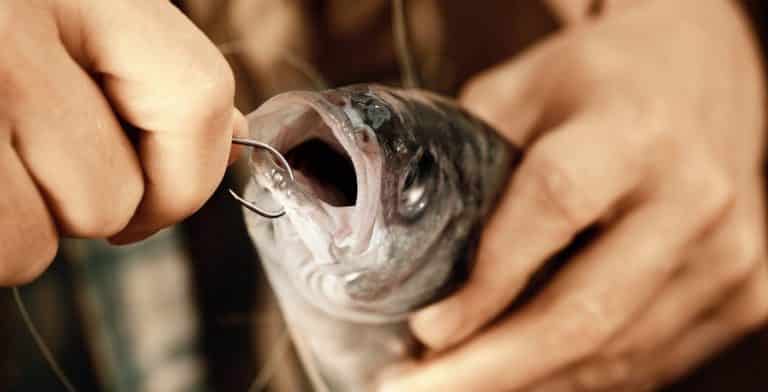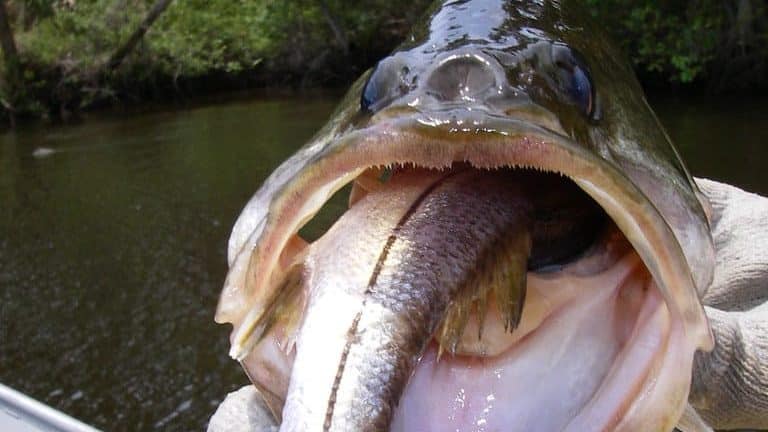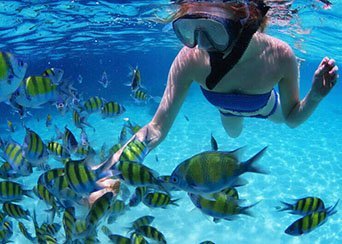20 Scuba Diving Tips For Beginners
SCUBA diving is one of the most rapidly growing water sports in the world. Nothing quite beats being able to move around freely underwater for prolonged periods of time.
It quite literally is exploring another world that you can’t see from land. Whilst diving underwater (always with a guide or dive instructor) is relatively safe and straightforward, there are some tips and points that beginners should be aware of to 1) make their time diving safer and 2) lead to a better experience underwater.
This post will provide 20 scuba diving tips for beginners.
Let’s dive right in!
Scuba diving tips for beginners:

Tip 1: Location
Think about where you want to go SCUBA diving. There are lots of different options, and you don’t necessarily have to go to the Great Barrier Reef for your first trip.
Consider what you want to see and where you’re willing to travel to. If you like shipwrecks, try SCUBA diving off the coast of the UK, as there are more wrecks per mile than anywhere else in the world.
If you prefer reefs, consider Thailand, Indonesia, Philippines or Hawaii. If you don’t like swimming in the sea, you can also SCUBA dive in lakes! There are lots of choices, and where you end up diving is entirely up to you.
Tip 2: Yoga
Practice some yoga. Yoga is wonderful, and a great way to build core muscles, endurance, balance, and help you regulate your breathing. This will really help you when you’re using the SCUBA equipment.
So, before you go SCUBA diving, see if you can find some local yoga classes. Another great way to try out yoga and still remain around the water is to practice yoga on a paddle board.
Tip 3: Learn basic sign language
Learn some sign language. The type of sign language used will depend on where you dive, so make sure you check in advance to ensure you get it right.
This will allow you to communicate with your dive buddy and any other divers you swim into when you’re under the surface, and bonus, when you’re back on land, you can communicate more easily with deaf people, mute people, and anyone else who uses sign language.
Tip 4: Become a strong swimmer
Go swimming. In the days and weeks leading up to your first dive, try to make sure that you’re in good physical condition and used to the water.
Dive schools shouldn’t let you go SCUBA diving unless you’re a confident swimmer. A great way to be prepared? Go to your local swimming pool, or even the place you’ll be diving in (but closer to the shore) and do a few laps.
Tip 5: Try snorkelling first
Do some snorkeling. Learning how to breathe through a snorkel is not entirely unlike breathing with SCUBA diving equipment (a regulator), and you’ll get used to being in and around water for more prolonged periods of time.
Plus, snorkeling is a lot of fun and if you snorkel and then SCUBA dive in the same place, you’ll be able to get a totally different perspective on it which will be really interesting.
Tip 6: Research
Research the dive school before you go. If you’re in an area that’s good for SCUBA diving, there will probably be lots of dive schools for you to choose from.
Have a look online and read the reviews and speak to other divers to see which is the best. You can also call the dive school and ask any questions you have to make sure that they’ll help you and keep you safe whilst you’re SCUBA diving.
Tip 7: Your physical health matters
Make sure you’re physically healthy. Don’t take decongestants before a dive. If you’ve got a cold or sinus infection you won’t be able to equalize properly, and if you have any cuts or scratches make sure that they’re properly dressed as they may get infected.
You should use waterproof tape and gauze to keep everything protected.
Tip 8: Fuel your body
Make sure you’ve had enough to eat and drink before you get in the water. It might be tempting to diet before wearing something that’s tight or to avoid the feeling of diving on a full stomach, but SCUBA diving is physically demanding and your body will need the extra energy and hydration.
Tip 9: Avoid alcohol the night before
Drink water, not alcohol. It’s not exactly shocking advice, but make sure that you don’t SCUBA dive whilst you’re hungover.
You’ll enjoy the experience less, be more susceptible to seasickness and you’re more likely to get the bends if you’ve had a lot of alcohol recently. If you really want to drink the night before, don’t have more than two.
Tip 10: Ask questions
Ask questions whilst you’re still on land. If you’re reading this article then you’re doing some research ahead of time, and that’s great.
But if you’ve got specific questions that you can’t find online answers to, or you’re keen to double-check things, that’s fine too. Your dive instructor should do a pre-dive brief before you leave the dive school, so take time, in the end, to speak to them.
Remember that someone else is probably wondering the same things as you, so you’re doing everyone a favor.
Tip 11: Understand your equipment
Understand your equipment. When you dive you’ll be wearing the following: a wetsuit; a mask that covers your eyes and nose; a buoyancy control device (or BCD) which allows you to float and then descend into the water when you’re ready; a regulator, which is a little device that sits in your mouth and connects to your air tank; an air tank and some fins, which fit onto your feet and allow you to move faster and more easily.
Understanding how all of this gear works and fits together is paramount in ensuring that you are safe and have a great experience in the water.
Tip 12: Check your equipment
So, you’ve arrived at the dive school, they’ve given you your kit and answered your questions. The next thing to do is make sure that everything works and fits properly – you don’t want to randomly lose a fin when you’re in the water!
If you’ve got any concerns, let your dive instructor know, and if you feel that they’re not taking this seriously or any of the equipment is damaged, do not dive.
Tip 13: Communication is key
Keep communicating with your dive instructor and your dive buddy. When you’re in the water, regularly ‘check-in’ to make sure that everyone is safe and having a good time.
You can also point out interesting things to each other, as it can be easy to miss well-camouflaged wildlife. It’s not recommended for beginners to take cameras in the water with them, as they can be distracting, so make sure you get a good look at everything.
Make sure that you stay close to your dive buddy, and if you get separated let your dive instructor know immediately.
Tip 14: Don’t touch the wildlife or surroundings
Look – but don’t touch. A lot of SCUBA diving takes place on coral reefs, which are teeming with all sorts of gorgeous and fascinating creatures.
However, reefs are under threat from a variety of things, so make sure that your diving isn’t one of them!
Do not touch the reefs, as this can kill them, and do not attempt to stand on the reefs or carve your name into them. Also avoid touching any other fish or animals you come across underwater, as this can be distressing for them.
It’s not impossible that they could sting or poison you, so do watch out. Unexpectedly, sharks are often not that dangerous: they tend to ignore divers and just swim away, so just give them distance and respect.
Tip 15: Avoid Panic
Don’t panic. When we start to panic we can make bad or instinctive decisions that can put us, ironically, in more danger.
You need to be able to keep your breathing consistent, and if you think you’re going to have a panic attack, let your dive buddy know so you can get back to the surface.
It’s much better to have a short dive than a dangerous one. If you think that you might start to panic, see if there are some techniques you can use – things like grounding – that might help you feel calmer and allow you to regulate your adrenaline.
Tip 16: Don’t swim against the current
Don’t try to swim against a current. It’s pointless and exhausting and can put you in danger.
If you’re going to be diving in an area with strong currents, make sure you discuss it with your diving instructor and your dive buddy before you go. However, when you’re more experienced and confident, you can learn to swim with the currents, which can be a lot of fun.
Tip 17: Avoid mask fog
Don’t let your mask fog up. It can be pretty annoying, so make sure you wash your mask with baby shampoo and rinse it thoroughly before you go for a dive.
This will mean that you can see clearly without any obstructions for the duration of your dive.
Tip 18: Learn about ‘the bends’
Be aware of nitrogen narcosis, or the bends. Honestly, if you’re a beginner it’s pretty unlikely that you’ll have to worry about this too much, as you probably won’t dive deep enough for it to become an issue.
The most common cause of the bends is ascending to the surface too quickly, so make sure you take your time and have lots of oxygen left before you start to rise. Your dive instructor should go over this prior to the dive.
Tip 19: Bring warm gear
Bring a towel, hoodie, and something warm to eat/drink with you. A wetsuit will stop most of your body from getting too cold, but when you return to the surface it’s easy to get chilly.
If you’ve gone out in a boat and there will be a delay between you finishing your dive and getting into a warm shower, see if you can dry off a bit and have a cup of coffee or soup waiting, possibly from a thermos. You won’t need anything more than this (unless specifically instructed otherwise), so try not to over-pack.
Tip 20: Have fun!
Have fun! SCUBA diving is an amazing experience and a great chance to explore a world that not many people are fortunate enough to see.
As a beginner, it can be a little overwhelming to try and remember all the signs, the things to check, and the safety tips, but it’s really worth it and you may well find a lifelong passion.
Other diving posts:






